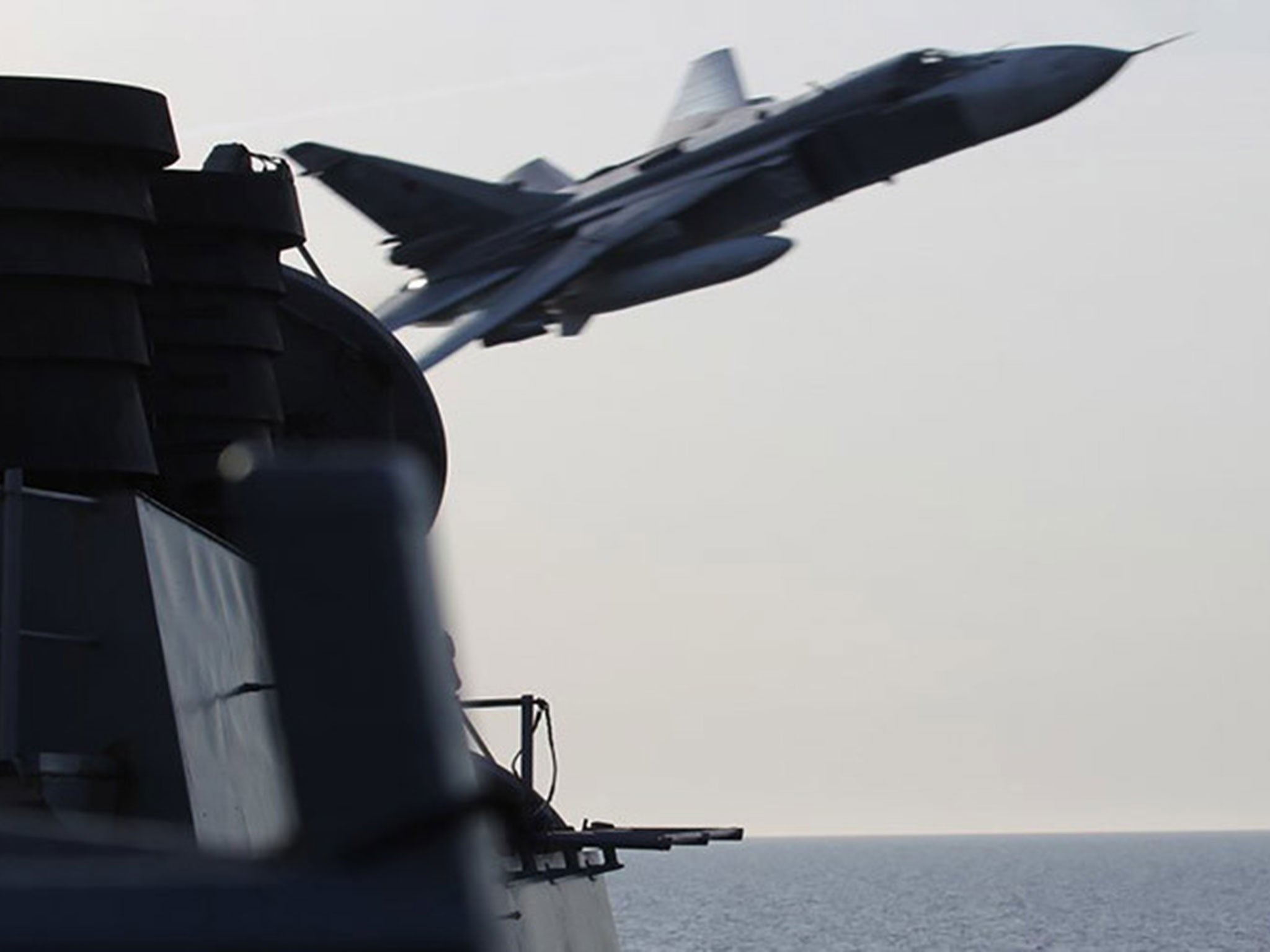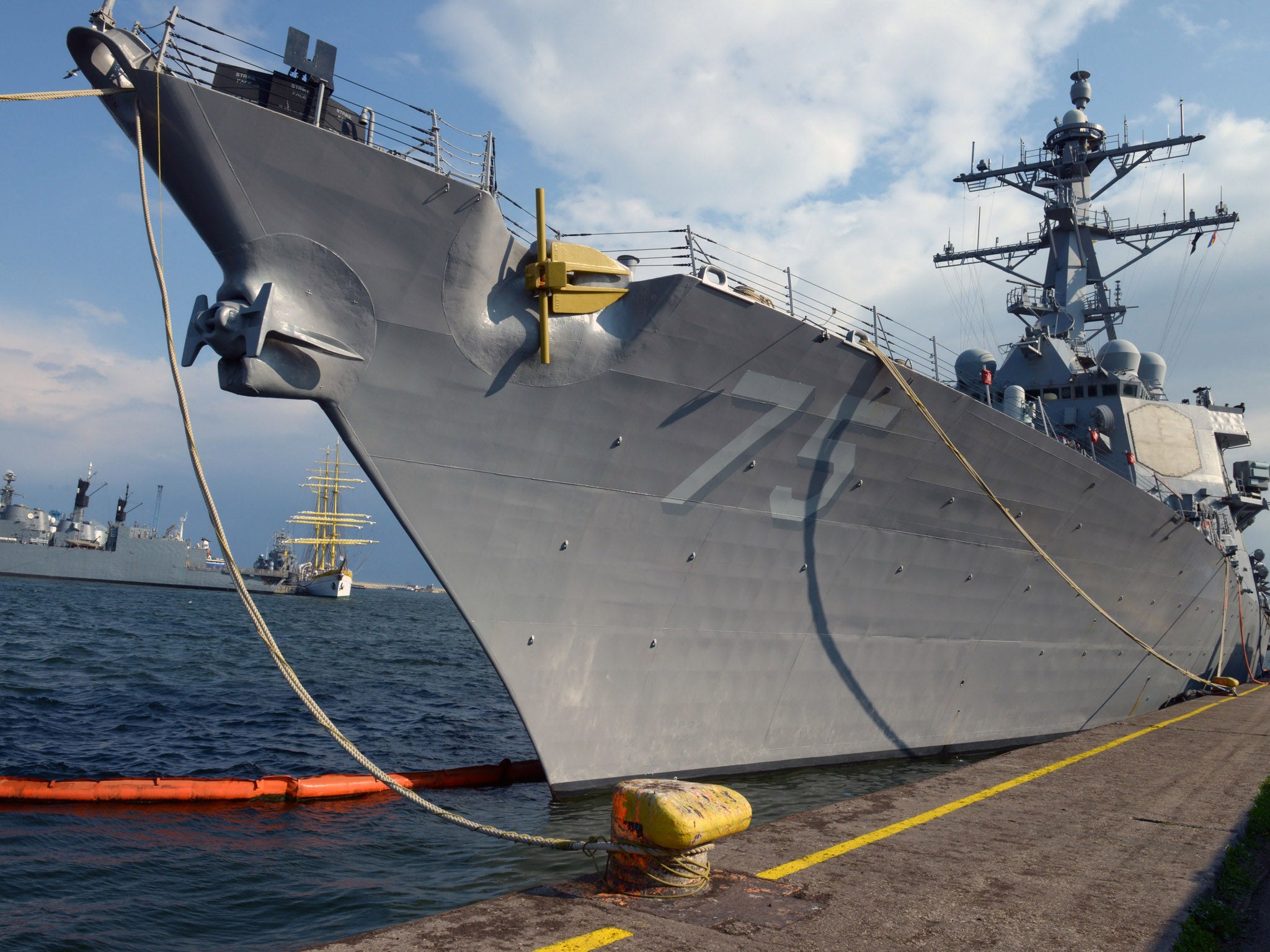Russia rejects complaints over simulated attacks by warplanes on US Navy destroyer
At one point, the planes past so close to the ship they created wakes in the water around it

Your support helps us to tell the story
From reproductive rights to climate change to Big Tech, The Independent is on the ground when the story is developing. Whether it's investigating the financials of Elon Musk's pro-Trump PAC or producing our latest documentary, 'The A Word', which shines a light on the American women fighting for reproductive rights, we know how important it is to parse out the facts from the messaging.
At such a critical moment in US history, we need reporters on the ground. Your donation allows us to keep sending journalists to speak to both sides of the story.
The Independent is trusted by Americans across the entire political spectrum. And unlike many other quality news outlets, we choose not to lock Americans out of our reporting and analysis with paywalls. We believe quality journalism should be available to everyone, paid for by those who can afford it.
Your support makes all the difference.Russia has rejected complaints by US officials who claimed attack planes buzzed dangerously close to a Navy destroyer in the Baltic Sea.
Two Russian warplanes repeatedly buzzed a US Navy destroyer in the Baltic Sea earlier this week in what American officials described as a "simulated attack".
At one point, the Su-24 attack planes came so close to the ship – an estimated 30ft – that they created wakes in the water around it.
Maj. Gen. Igor Konashenkov, spokesman for the Russian defense ministry, said the pilots of Russian Su-24 jets saw the ship and turned back "while using all measures of precaution." Konashenkov said he was baffled by what he described as the "distressed reaction of our American counterparts."
The Russian planes appeared to be unarmed but did not respond to attempts to contact them by the crew of the USS Donald Cook.
A US defence official said the commander of the ship deemed the Russian planes’ actions to be unsafe and unprofessional and that the US believed that it was a violation of a 1970s agreement to prevent unsafe incidents at sea.
The official told CNN it was a "simulated attack" and the planes were practising "strafing runs" - a military technique of attacking ground target from a low-flying aircraft - to "send a message to Poland".
At one point, at least one of the planes came within 30 feet of the ship - which the US official said was a highly unusual.
He said the ship was operating in international waters 70 nautical miles off the Russian enclave of Kaliningrad. It had departed the Polish port of Gdynia on Monday.
It is currently unclear whether the US government will formally protest to Russia. US Navy photographs of the incident have not been released.
On Monday, a pair of Russian Su-24 planes made 20 passes over the ship, coming as close as 1,000 yards at an altitude of about 100 ft.

A Polish helicopter aboard the Cook was scheduled to conduct flight operations but those manoeuvres were cancelled because of the Russian actions, the official said.
On Tuesday, a Russian KA-26 submarine-hunting helicopter circled the Cook seven times, taking photographs, he added.
Later that day, another pair of Su-24 attack planes, apparently unarmed, buzzed the Cook 11 times.
The incident comes after months of continuing diplomatic tensions between Moscow and Washington over Russia's role in conflicts in Ukraine and Syria.
Additional reporting by AP
Join our commenting forum
Join thought-provoking conversations, follow other Independent readers and see their replies
0Comments